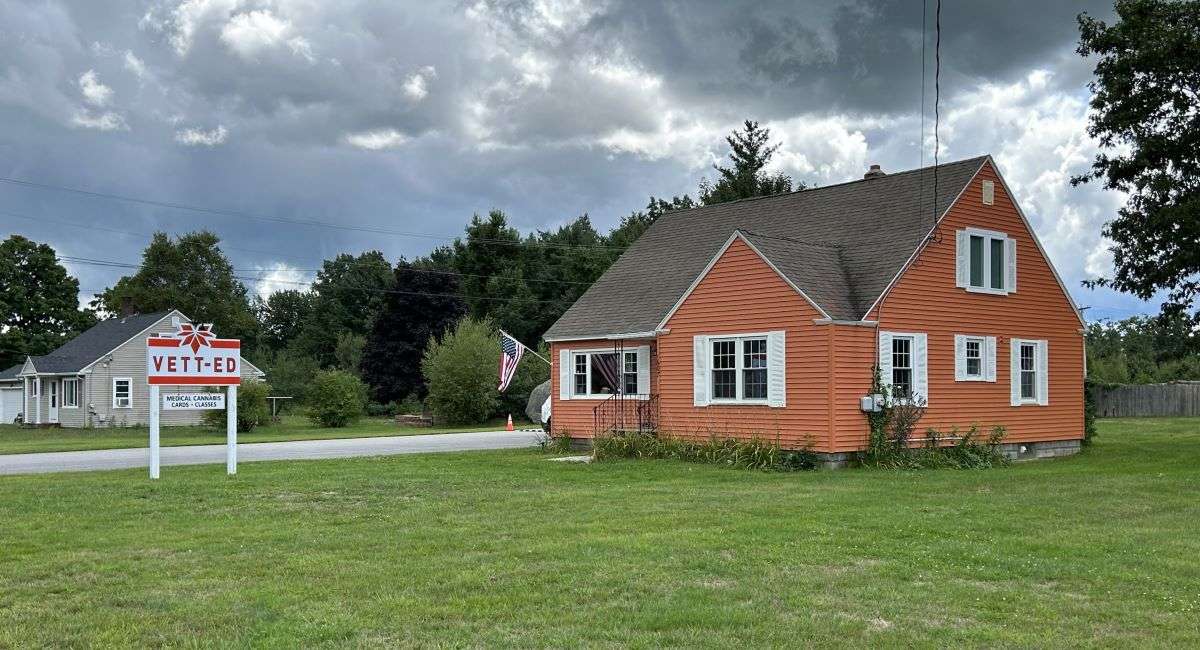State Rule Changes Threaten Medical Cannabis Providers
- August 23rd 2024
- Business News

Vetted Cannabis is one of the medical offices affected by a state rules change.
Photo: Zendelle Bouchard
By Zendelle Bouchard
Rule changes made by the Maine Office of Cannabis Policy could seriously impact the operations of several medical cannabis caregivers here. Sanford’s zoning ordinance currently allows for a medical cannabis cultivator to have an office where they prescribe and sell product directly to their patients. Before that provision was created, medical providers in town had to meet their patients in a public place to deliver cannabis to them.
Planning and Codes Director Jamie Cole told the City Council’s Zoning Subcommittee on Aug. 13 that the new state rules, effective Aug. 9, classify medical cannabis offices as retail stores, and local authorities must sign an authorization form to grant permission for the stores. However, since Sanford’s ordinance specifically prohibits medical retail stores (only adult use recreational stores are allowed), the authorization cannot be granted unless the zoning ordinance is changed. Until that change occurs, as their annual licenses expire, medical practitioners will lose their locations to sell directly to patients.
He said the City Council’s options include allowing medical retail stores on all eight properties in Sanford where cannabis operations are allowed, or allowing medical retail on the five properties where the zoning already allows retail sales. (Each property may house multiple cannabis-related businesses, both medical and adult-use.) The second option for the council is to choose to allow recreational retail sales. Those five properties where retail sales are allowed are 72 Emery St., 9 Renaissance Way, 27 Hancock Lane, 12 Smada Dr. and 22 Smada Dr.
The three properties where retail sales are not allowed are in the Industrial Business zone. They are 168 Country Club Rd., 1603 Main St. and 81 Industrial Ave. There are medical cannabis offices on all three of those properties.
Other options that were raised include creating an overlay to the IB zone that would allow for limited retail; and creating an allowance for a medical dispensary that could sell products from multiple caregivers.
Councilor Bob Stackpole said he wanted to find a solution that would allow the medical caregivers to stay in business. He pointed out that the problem stems from Sanford treating cannabis companies differently from other types of businesses. “If this was Dunkin’ Donuts, we wouldn’t be having this conversation,” he said.
Deputy Mayor Maura Herlihy responded that she did not want to water down the zoning ordinances by making exceptions but would consider amending the industrial business zone to allow all types of retail sales. However, she said if businesses are forced to close, it is the state’s fault, not the city’s.
Mayor Becky Brink said her first priority is protecting Sanford’s industrial-zoned property for future industrial use. Cole agreed, noting that the city is in a unique position to attract businesses right now, as it has the only industrial-zoned property available in southern Maine. He suggested getting input from the land use consultants who will be speaking at the Comprehensive Plan Steering Committee next week.
City Planner Erin Moriarty pointed out that a major safety concern with adding retail to the IB zone is the number of passenger vehicles that would be mixing with heavy trucks. She said one option would be to restrict retail activity to specific streets, as the city recently did with excavation businesses.
City Manager Steve Buck said he takes a lot of pride in the cannabis industry in Sanford, which he called “an economic engine” for the city. He asked if, rather than allowing retail sales in the IB zone, there might be a way to meld the definitions of medical office and retail sales that would allow the city to comply with the state’s rule change but without allowing full retail operations. In effect, he said, this could be a way to grandfather the existing operations without allowing new ones to open.
Cole said he, Moriarty and Permit Specialist Alix Horr will work together to craft an ordinance that works for everyone and will report back next month.






